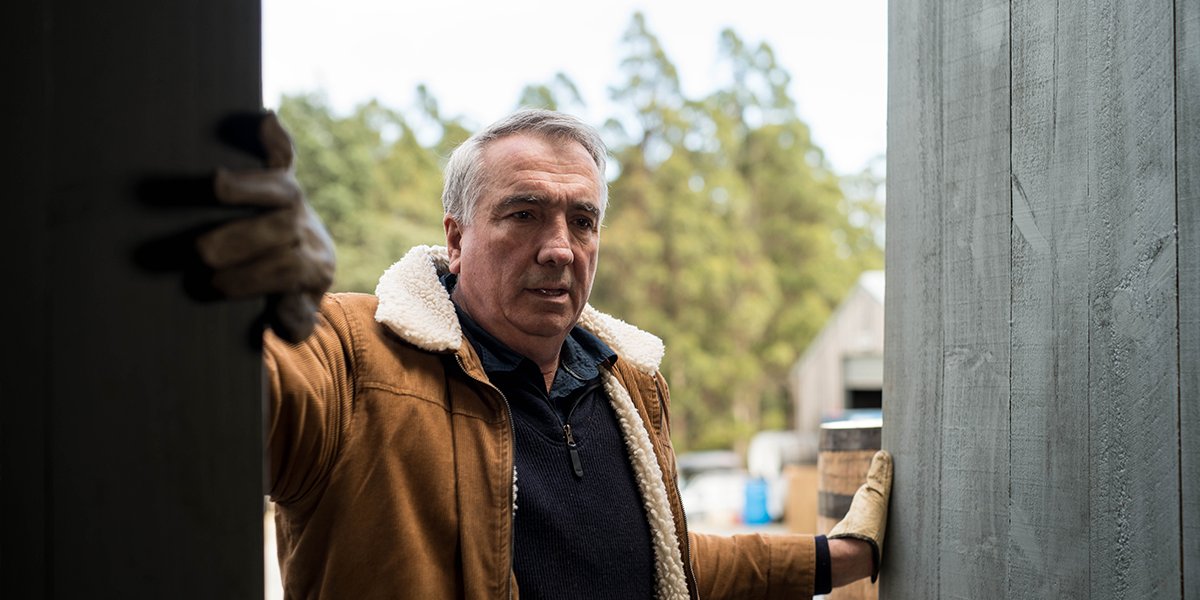Andy Jackman
"We started small, very small and very green. We chose to be unique. We’re not about scale or conventional farming. There is a huge opportunity to do it differently."
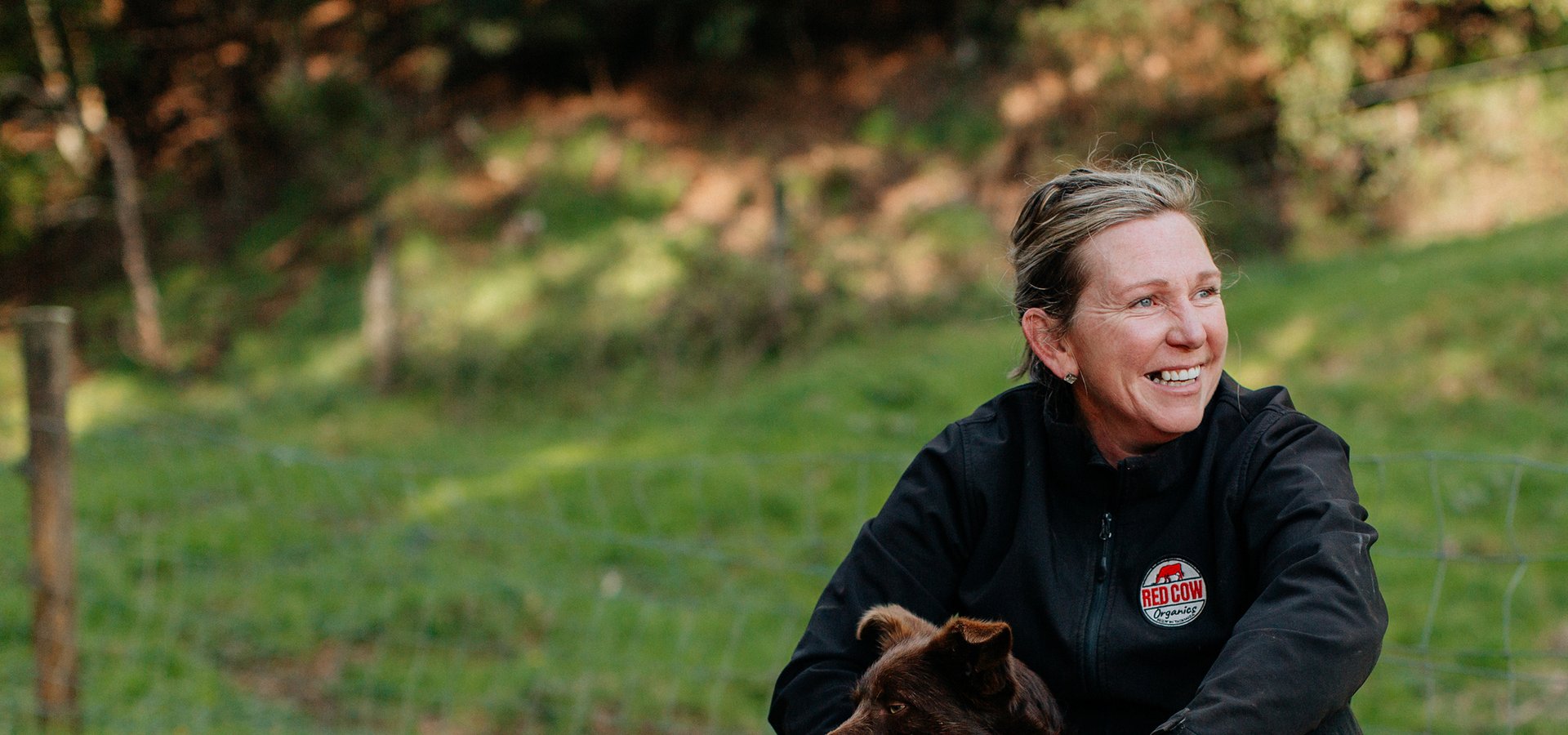
"We focused on our red cows. We had to learn how to farm in the hills. We feed a lot of seaweed and kelp to our animals, to get a mineral balance.”
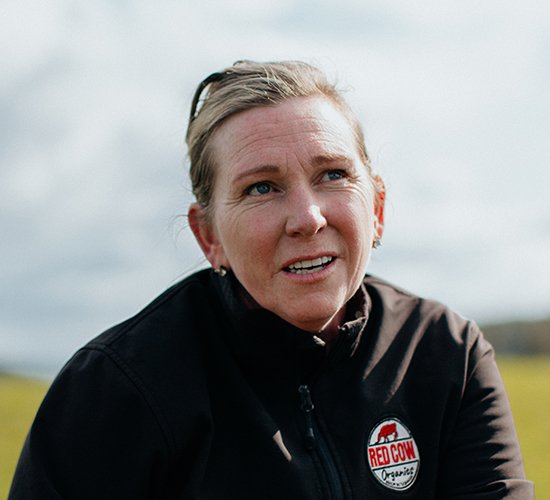
Few careers begin with environmental science, veer into the police force, turn to large-scale dairy farming in Victoria and settle into small-scale, artisan cheese-making in Tasmania.
Yet when you speak to Andy Jackman, founder of Red Cow Organics, it makes perfect sense.
“I wanted to work with the community and help people,” she says, on her farm in North West Tasmania. “So I changed my career drastically and joined the Victorian police force.”
In her eight years on the force, she met her husband Matt, a fourth-generation dairy farmer. And she missed something of her environmental studies, particularly the connection to the land. “It was another way to make a difference, as farmers and to support farmers too. We started farming with dairy cows in Northern Victoria.”
It was modern, large-scale farming. But something deeper from her studies called her. “We weren’t faming sustainably,” she says. “We’re driving tractors, not growing grass to sustain a farm at 45 or 48 degree temperatures.”
In the early 2000s, exhausted by droughts and longing for a more environmentally-sound way to make something special, they began exploring Tasmania. There was water, a more forgiving climate, and a community of farmers and customers who cared about a more natural way to live off the land. Andy took long service leave from the police force and they bought a farm.
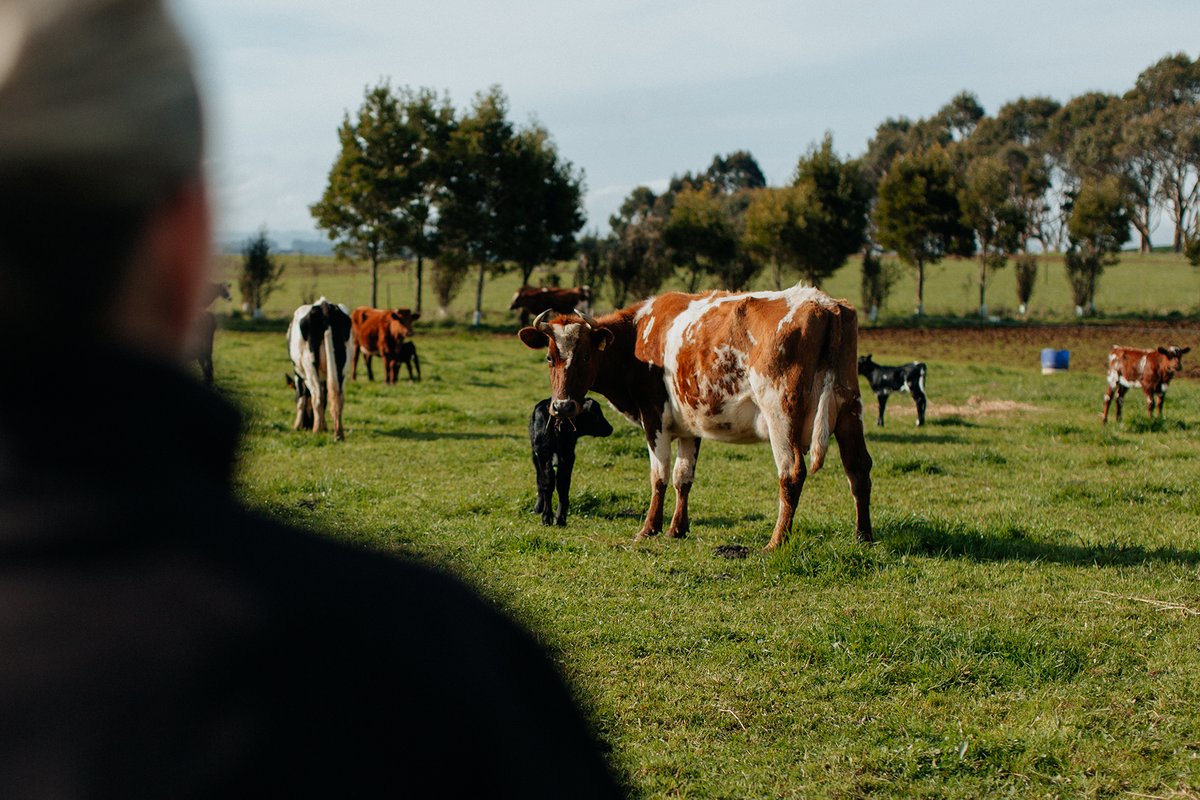
Red Cow Organics is set in the rolling green hills of North West Tasmania, 30 minutes south of the Bass Strait coast. It is an idyllic spot, but not all of the black-and-white cows who accompanied Andy and Matt thrived in their new home.
“It’s not the kind of country for this kind of animal,” says Andy, “so we focused on our red cows. We had to learn how to farm in the hills. We feed a lot of seaweed and kelp to our animals, to get a mineral balance.”
The sort of farming they left behind was entirely different from what they were building at Red Cow Organics. Andy says that in 2013 there weren’t many artisan cheeseries or models to follow. In Australia, it is—in many ways—easier to run a massive factory farm with thousands of head of cattle than an organic, value-added cheesery.
Ten years earlier, at the other corner of the state, Nick Haddow had launched Bruny Island Cheese. Everyone had told him a small artisan cheesery would not work in Tasmania, let alone on an island without cows. He wanted to make raw cheese, which was illegal in Australia at the time. And he not only succeeded; Bruny Island Cheese thrived.
It takes a certain kind of person, but Tasmania seemed the right place with the right culture to Andy.
“It was a risk,” she says. “But I’m kind of a risk taker. We started small, very small and very green. We chose to be unique. We’re not about scale or conventional farming. There is a huge opportunity to do it differently, to talk to people about why, to learn from our mistakes and our farming practices. And we have a big biodynamic and organic network across Australia and New Zealand. What I like about Tasmania is that it’s so strongly interwoven. We need to be connected, even to be vulnerable. I don’t know how to do this… so I call someone and we help each other. You get addicted, in this state, to being connected.”
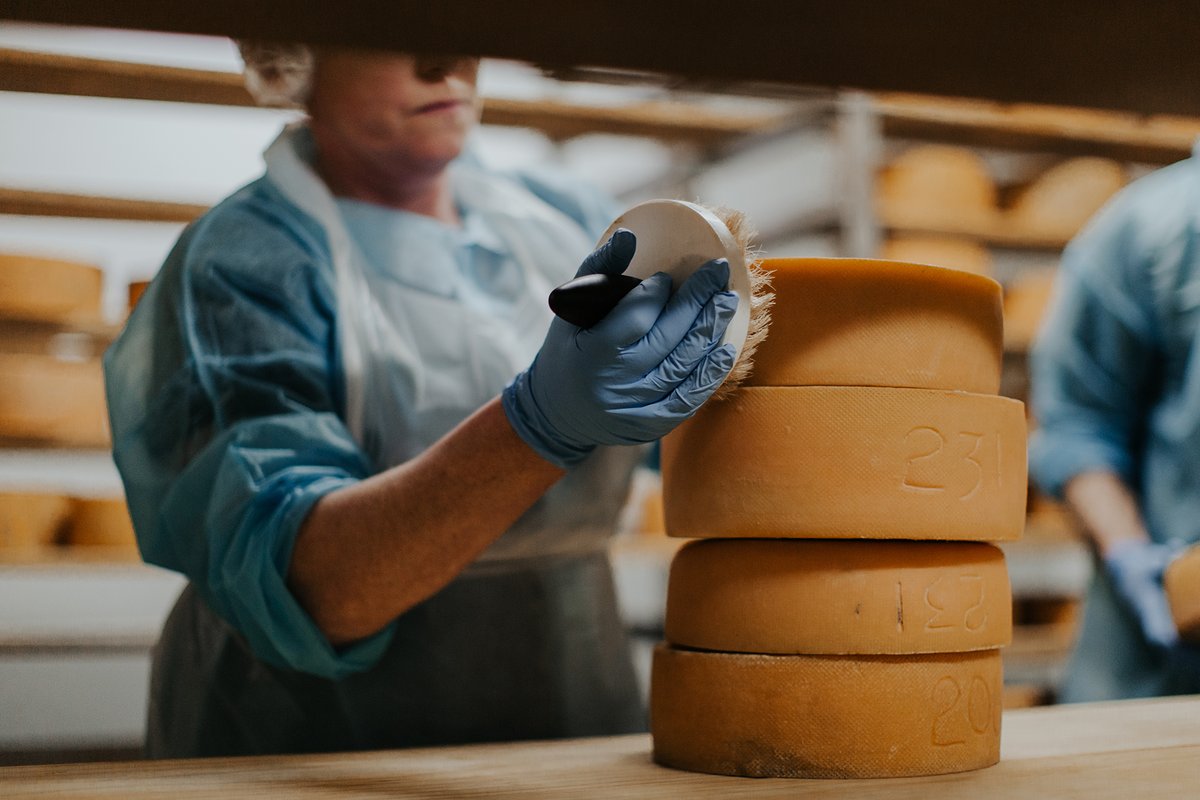
Red Cow Organics took ten years to build. Today, Andy has strong relationships with customers and other small-scale farmers across Tasmania. “You stick to your values, which is something environmental scientists tend to do. If you think too much about all the work that has to go into it, you probably wouldn’t do it. But our customers, they love what we do. They love the ethics behind it. And they’re perfect market research, when you put the product in front of people. They say, ‘I love it. Totally love it. And I love this one.’”
Andy and Matt are welcoming people on to their farm, to stay, to taste, and to understand what makes biodynamic and organic farming different. What is regenerative carbon farming all about? Most importantly, they want to help people make enduring connections to the land, to the animals, to the implications of the food choices they make every day.
“Maybe it’s tasting the cheese. Maybe it’s patting a calf or turning over a dung beetle pile. Or the worms. Or kids finding an egg. I remember my own emotional connections, when I used to get the cream off the top of the milk.”
Andy is particularly interested in the next generation. In time, she wants to volunteer with the biology department at University of Tasmania, to help protect the Tasmanian devil. She thinks of her son and the choices he is making.
“He loves it. He seems to like older people, older friends in the neighbourhood, who take him fishing or set up a camera to watch a particular robin. And he sells organic eggs. He loves cows. When he was a baby I used to put him out in the paddock so the cows would get used to him.”
When she first arrived in Tasmania, Andy the risk-taker had hedged her bet just a bit. She was still officially on long-service leave from the police force. She still is.
“Yeah. I don’t think I’ll be going back.”

We worked with north west Tasmanian photographers Moon Cheese Studio for this Tasmanian story.
Read about more Tasmanians
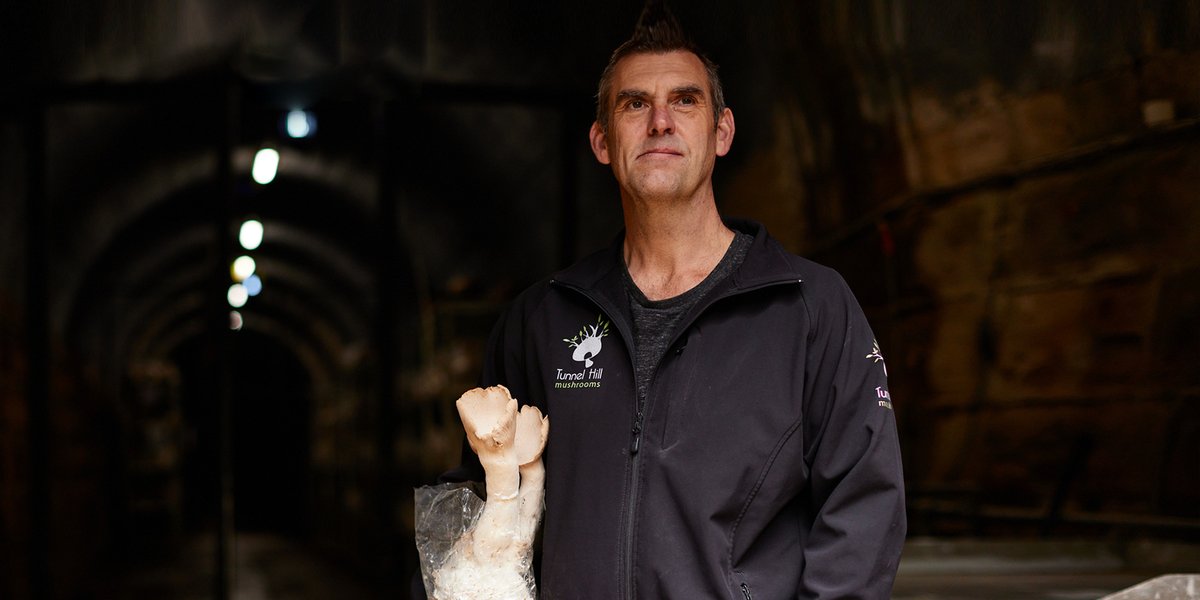
Dean Smith
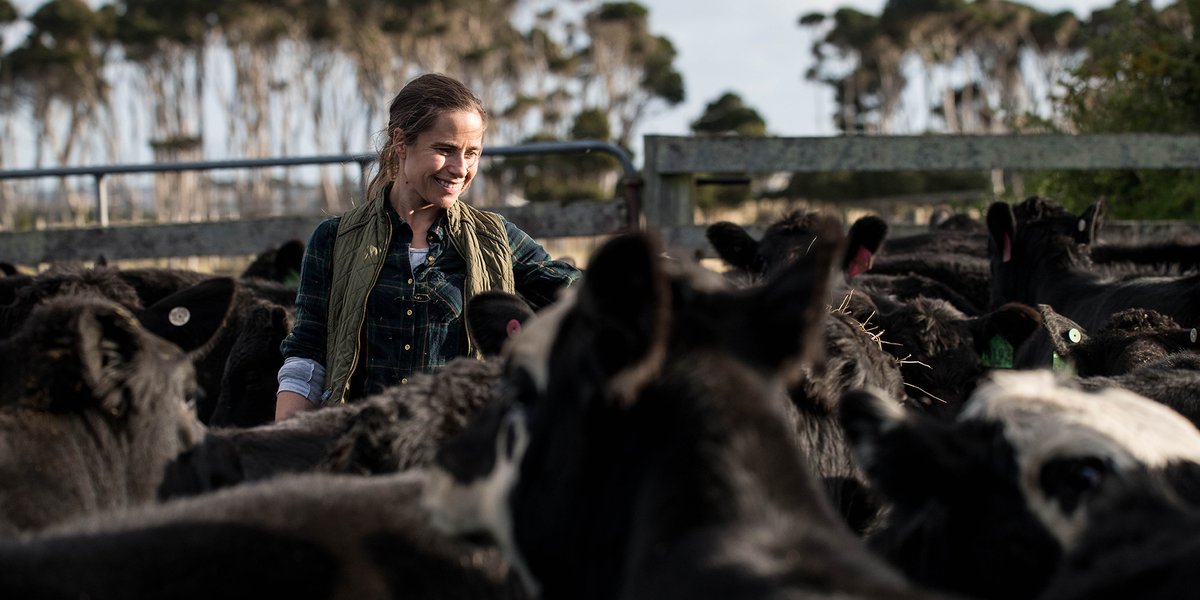
Ana Pimenta
